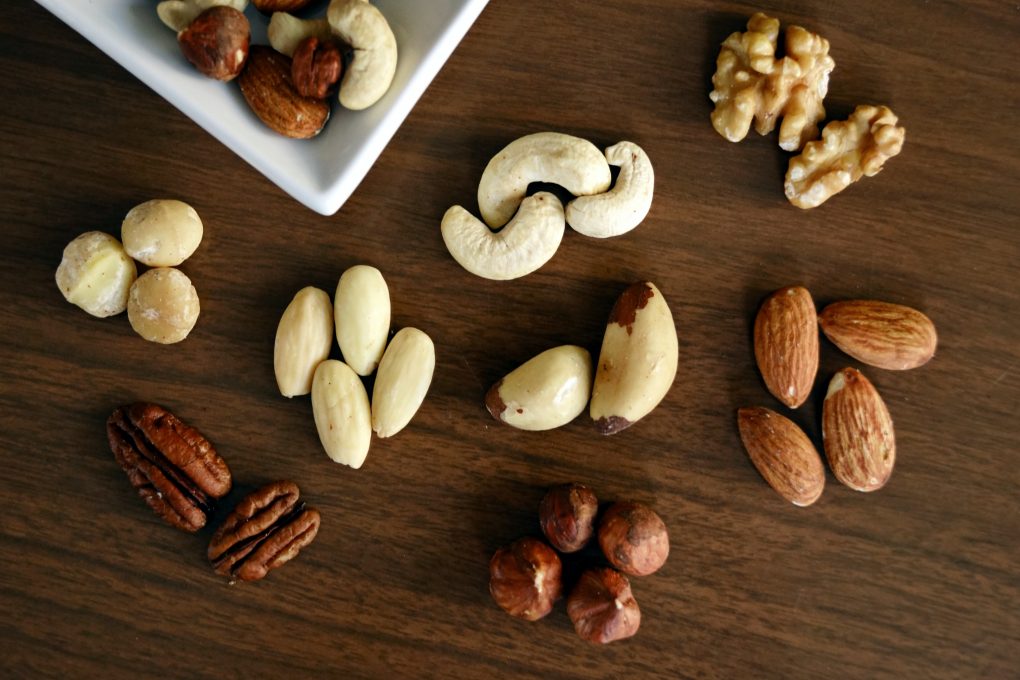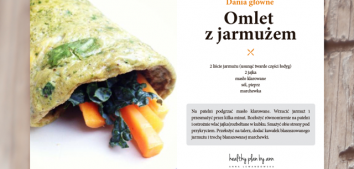
Nuts. Which ones should we choose?
Nuts are great as a healthy snack but also as a nutritious addition to a meal, e.g. to boost your morning porridge! According to the latest recommendations of the National Food and Nutrition Institute in Warsaw nuts are recommended for maintaining a healthy and balanced diet, which is why you can find them in the Healthy Eating Pyramid. The European Society of Cardiology recommends consuming about 30 grams of (unsalted) nuts per day.
Why are nuts so good for you?
- They provide a lot of energy, about 553-718 kcal/100g;
- They are one of the richest sources of fat, especially in the healthy mono-and polyunsaturated fatty acids beneficial to your body, which have anti-inflammatory properties and lower the total cholesterol level;
- They contain dietary fiber (about 3.3-12.5 g/100 g), which, among others, improves intestinal peristalsis;
- They are a source of antioxidants, including: flavonoids, polyphenols and tocopherols;
- They provide lots of vitamins (especially vitamin E, but also vitamins B and K) and minerals, such as iron, magnesium, phosphorus and zinc;
- Nuts exhibit properties of tumor growth inhibition;
- Eating nuts has a positive effect on memory processes – maybe it’s not a coincidence that even the very shape of a walnut resembles our brain? ?
Which nuts are best to choose?
Walnuts (645 kcal/100 g) – they contain one of the highest levels of antioxidants and polyunsaturated fatty acids. In addition, they are characterized by a favorable ratio of omega-6 to omega-3 acids (4:1) which is important in preventing the development of cardiovascular diseases. It is also worth noting that walnuts have been approved by the European Food Safety Authority as a product that helps to improve the elasticity of blood vessels in a 30g serving.
Hazelnuts (630 kcal / 100 g) – have the highest calcium content. They are a rich source of monounsaturated fatty acids, vitamins E, B6 as well as magnesium and copper.
Cashews (553 kcal/100 g) – they are known to be the best source of iron: they contain even more iron than lean meat! They support the treatment of anemia.
Brazil nuts (655 kcal/100 g) – best known for their high content of selenium which is essential e.g. for metabolism of thyroid hormones – already 2 nuts a day cover the recommended dose for this ingredient.
Almonds (579 kcal/100 g) – they are characterized by a high content of calcium (approx. 269 mg / 100 g), which has a positive effect on the condition of bones, and vitamin E, which reduces the risk of heart disease.
What to avoid?
First of all, nuts with unnecessary additives, such as caramel or salt. Any roasting and salting processes reduce their nutritional value. Most often this applies to peanuts (I wrote more about them in an earlier post, which you can find HERE) but not only, so be sure to read the labels of the products you buy.
Shelled nuts cannot be stored at high temperature, because it may spoil them, or more precisely, they become rancid. This process occurs due to the high fat content found in nuts and involves the oxidation of fatty acids. This contributes primarily to a very unpleasant odor, and even toxic substances can be formed. The essential unsaturated fatty acids (EFAs) and vitamins are destroyed. In addition, oxidized fat can destroy valuable nutrients contained in other food products, with which it comes into contact, e.g. biotin, riboflavin, ascorbic acid, pantothenic acid. Therefore, it is best to store nuts in a cool and dry place.
Considering the high calorific value of all nuts, you must be careful with the amount you eat: the recommended dose is a handful of nuts! It is also worth taking care of the variety in your diet and reaching for various types of nuts.
If you are not convinced yet by the option of nuts as a snack during the day, maybe I can encourage you to do so with my products, where I offer, among others, delicious hazelnuts with chocolate (HERE) or cashews with chocolate (HERE)!
Remember that what you eat can be healthy and delicious at the same time! ?
Bibliography:
- Ciemniewska- Żytkiewicz H., Krygier K., Bryś J. Wartość odżywcza orzechów oraz ich znaczenie w diecie; Wydział Nauk o Żywności, SGGW w Warszawie, 2014 r.
- Kulik K., Waszkiewicz-Robak B. Orzechy jadalne jako źródło składników aktywnych
- Malinowska E., Szefer P. Badanie zawartości niezbędnych składników mineralnych w orzechach, migdałach i suszonych owocach, Akademia Medyczna w Gdańsku, 2017 r.
- Stróżyk A., Pachocka L. Orzechy jako istotny składnik diety sportowców










Comments No Comments
Join the discussion…